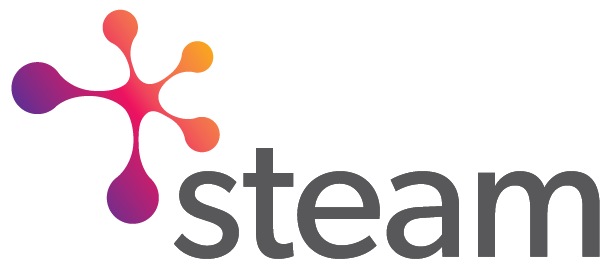Our online course is a stand-alone introduction to science communication. It also comes as a free bonus to your STEAM summer school ticket, allowing you to develop your core knowledge so we can focus on skills development at the school.
See below for our list of modules and what they cover. For each module we have explained how it feeds into our face-to-face programme.
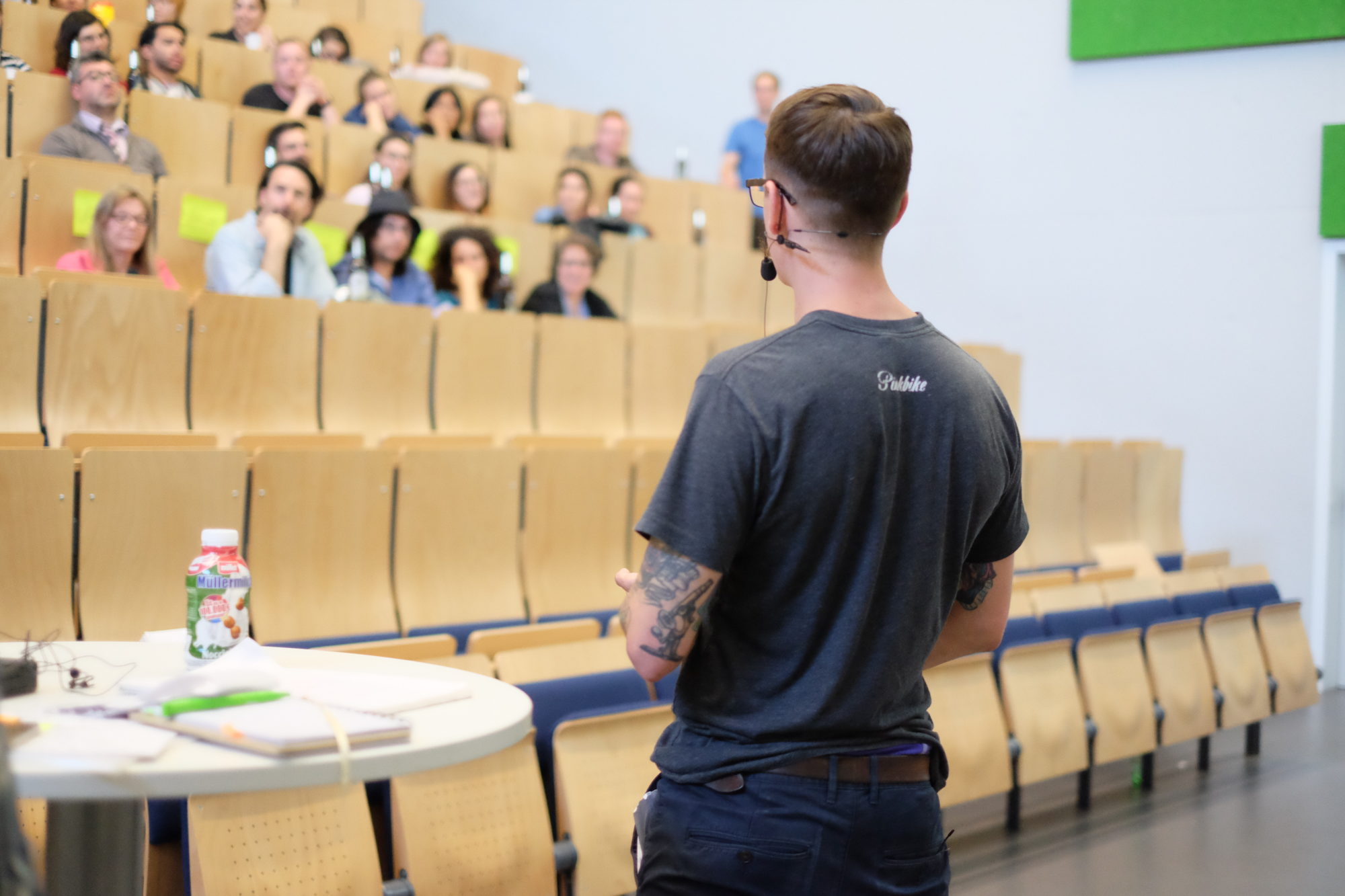
introduction to scicomm
A brief history of science communication, including the public understanding of science movement and how this transitioned to a focus on public engagement with science and technology. Following this we explore different motivations to communicate science.
At the school we examine our individual motivations to communicate science and develop short and long-term goals for the future.
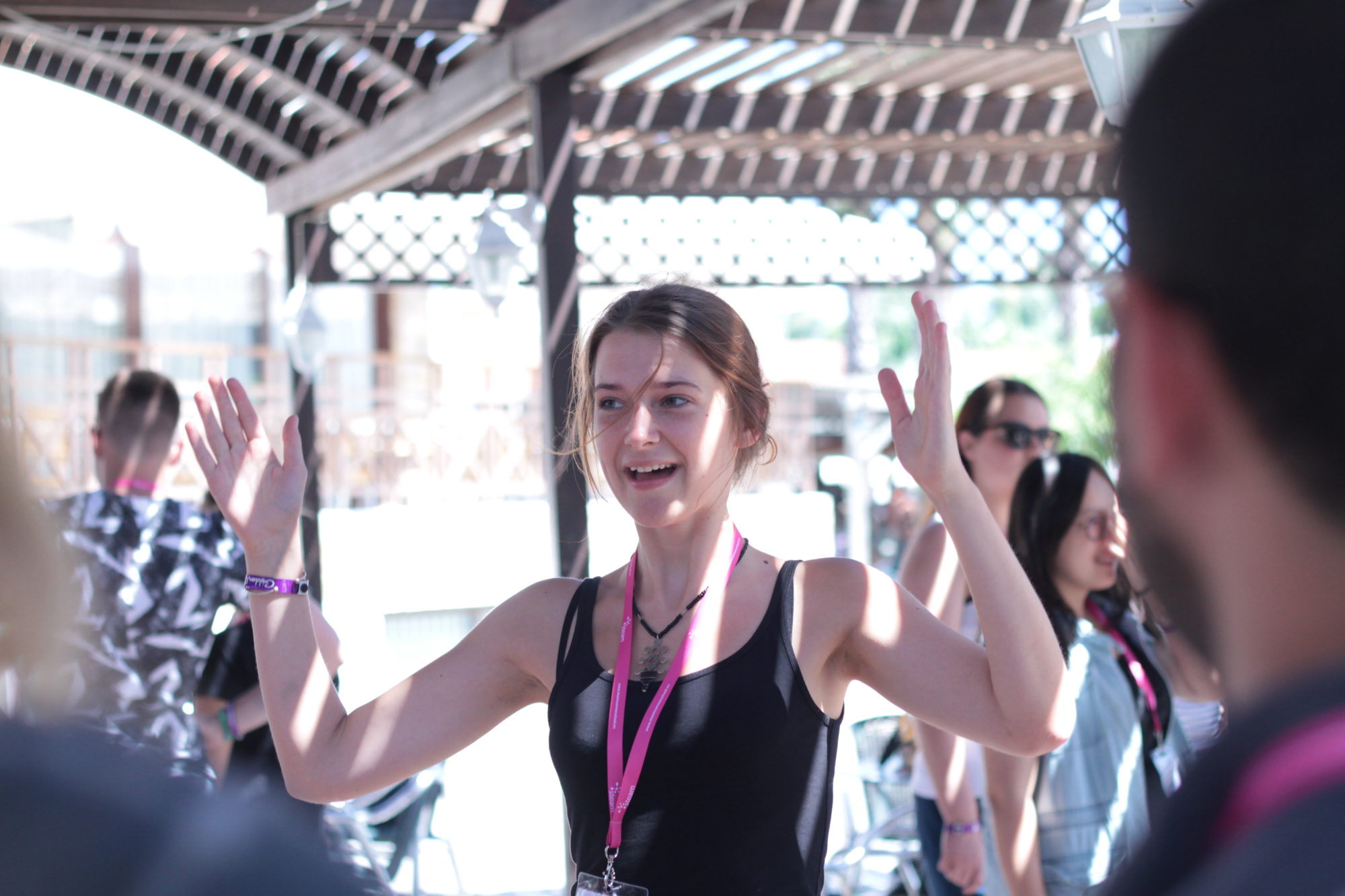
dialogue
Examining ‘Dialogue’ as a public engagement technique, what it involves, why it’s effective and how to facilitate it.
At the school we take this a step further, looking at public engagement with controversial issues in particular and develop our dialogue skills.
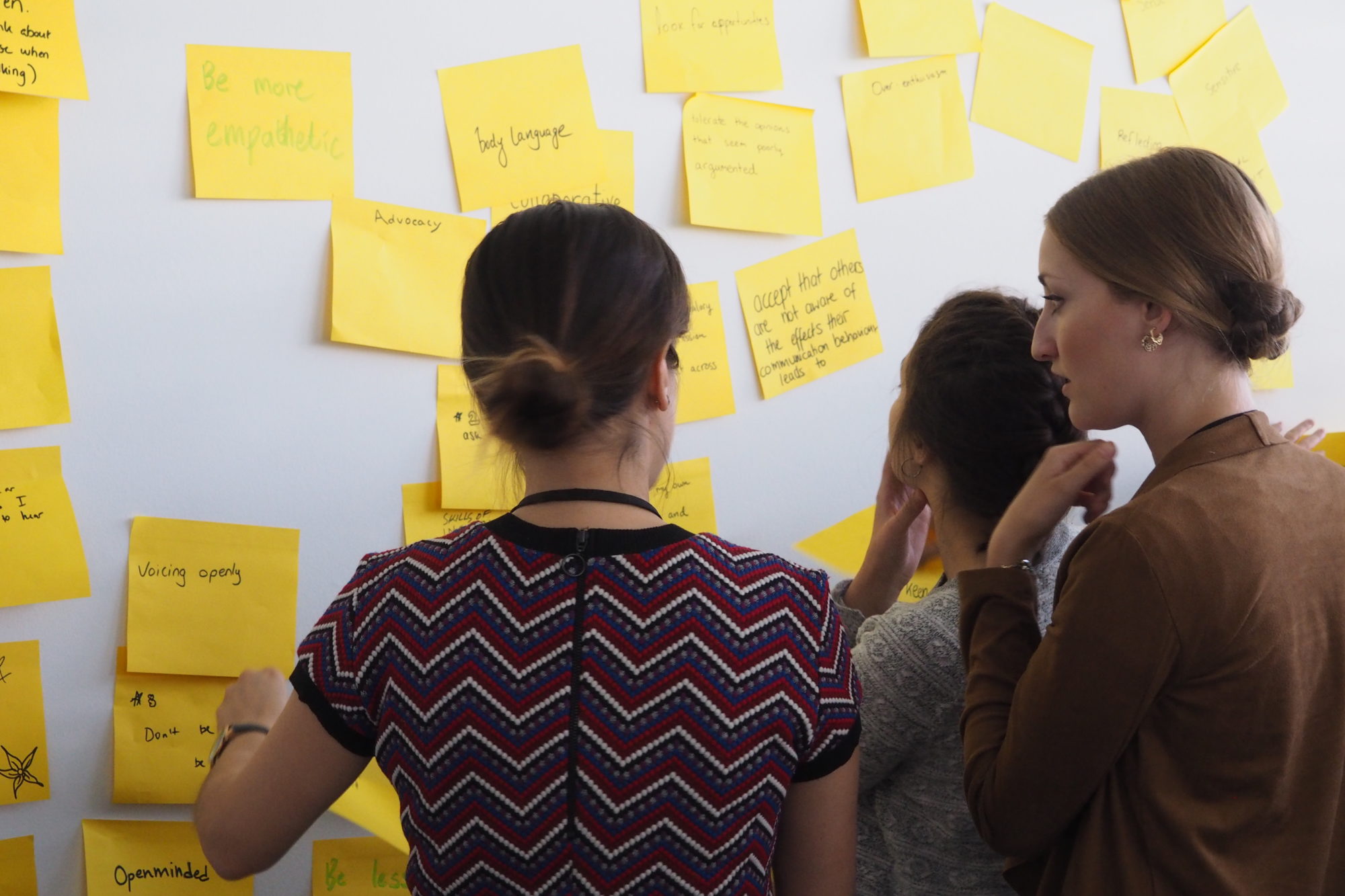
audiences
The concept of cultural capital and the use of science capital as a theoretical lens. Thinking of different ‘publics’, audience segmentation and tailoring to different audiences.
At the school we apply these concepts to a group project where we design and deliver a public engagement activity, starting by selecting an audience and tailoring our format ideas to their interests and needs.
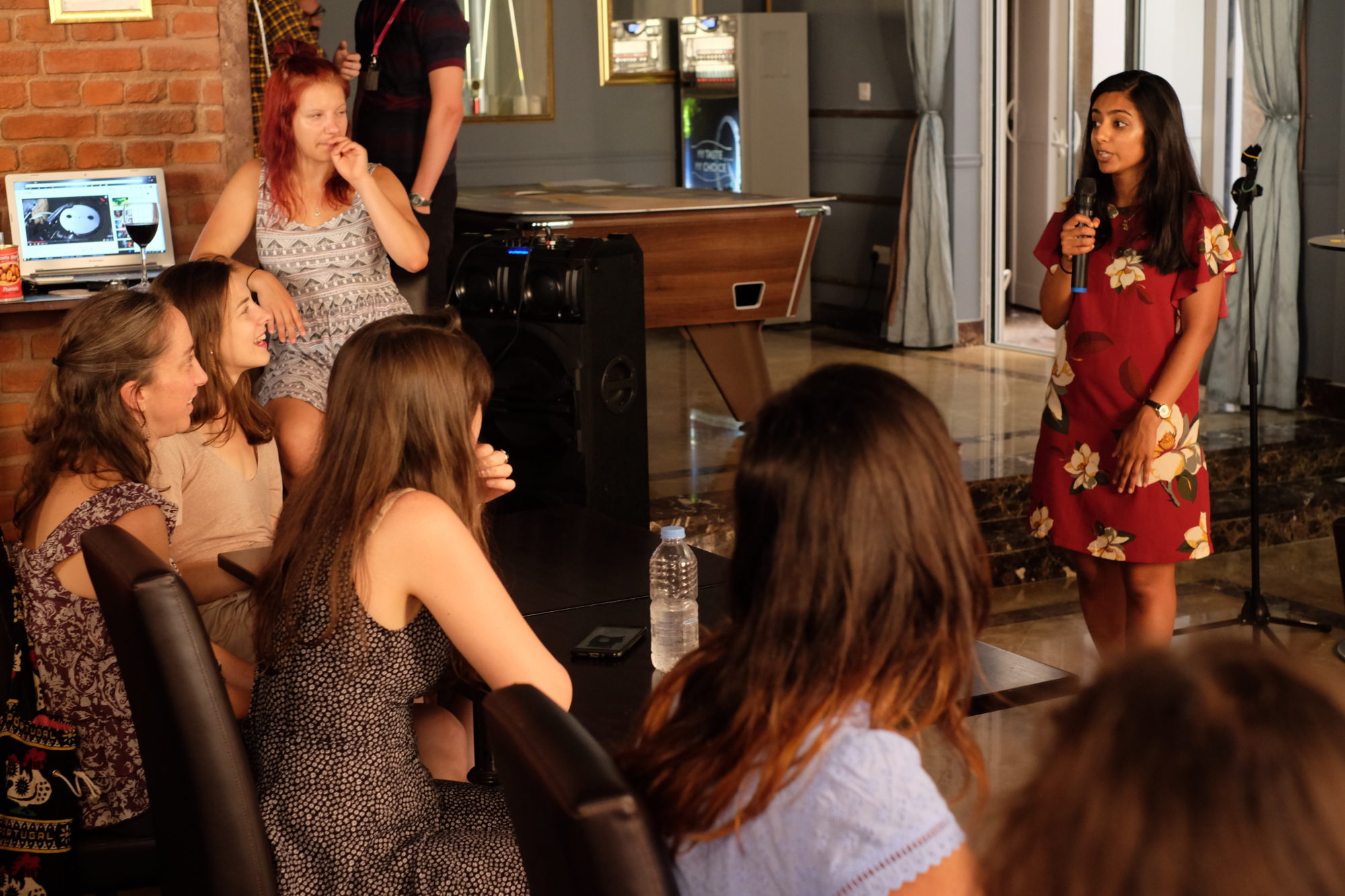
Presentation Skills
How to script an impactful talk, various ways to hook the audience, good and bad use of slides and performance skills.
At the school we spend a full day on interactive acting and comedy techniques to build confidence in public speaking, ending in the development and delivery of a performance at a local pub in the evening.

science and art
A basic introduction to art and exploring the segregation of art and science. Why art is important, where science and art overlap and how they can benefit from each other.
At the school we spend a full day on ’embodied learning’, exploring our creativity through the production of short science theatre performances. New ideas are then fed into our public engagement event.
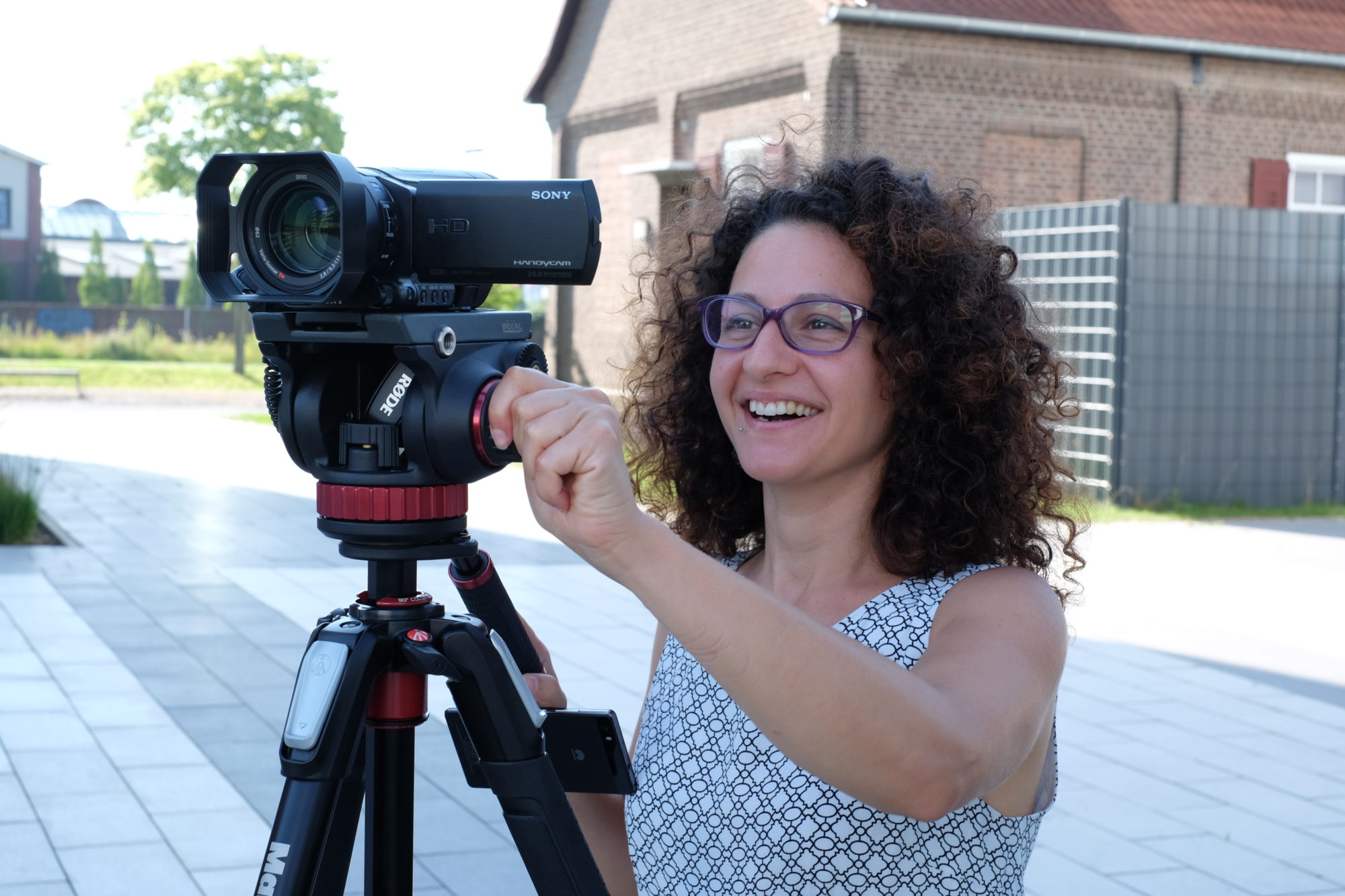
media and journalism
The role of the media and science journalism in its current context. Fake news and the ‘post-truth movement’, the impact of media on the reputation of science and the challenges faced by journalists.
This will provide a good background for our comms activities throughout the school that surround our public engagement event.

communications and branding
One-way external communications and the importance of branding based on decision science. How to establish a brand, develop a tone of voice and frame communications.
At the school this will feed into our promotional activities and post-event write-up. Particularly as we develop our own ‘brand’ for the event.

online and social
How to write for the web and succeed online through search engine optimisation. Gaining followers on social media, advertising, web analytics, publishing tools.
Again this will feed into our public engagement event which we will promote through social media using the above techniques.

writing
How do choose newsworthy items and structure a news article. Writing through narrative techniques to produce engaging pieces. Interviewing for and pitching articles.
At the school participants can choose to focus on writing about our engagement event or the school itself through any desired format.
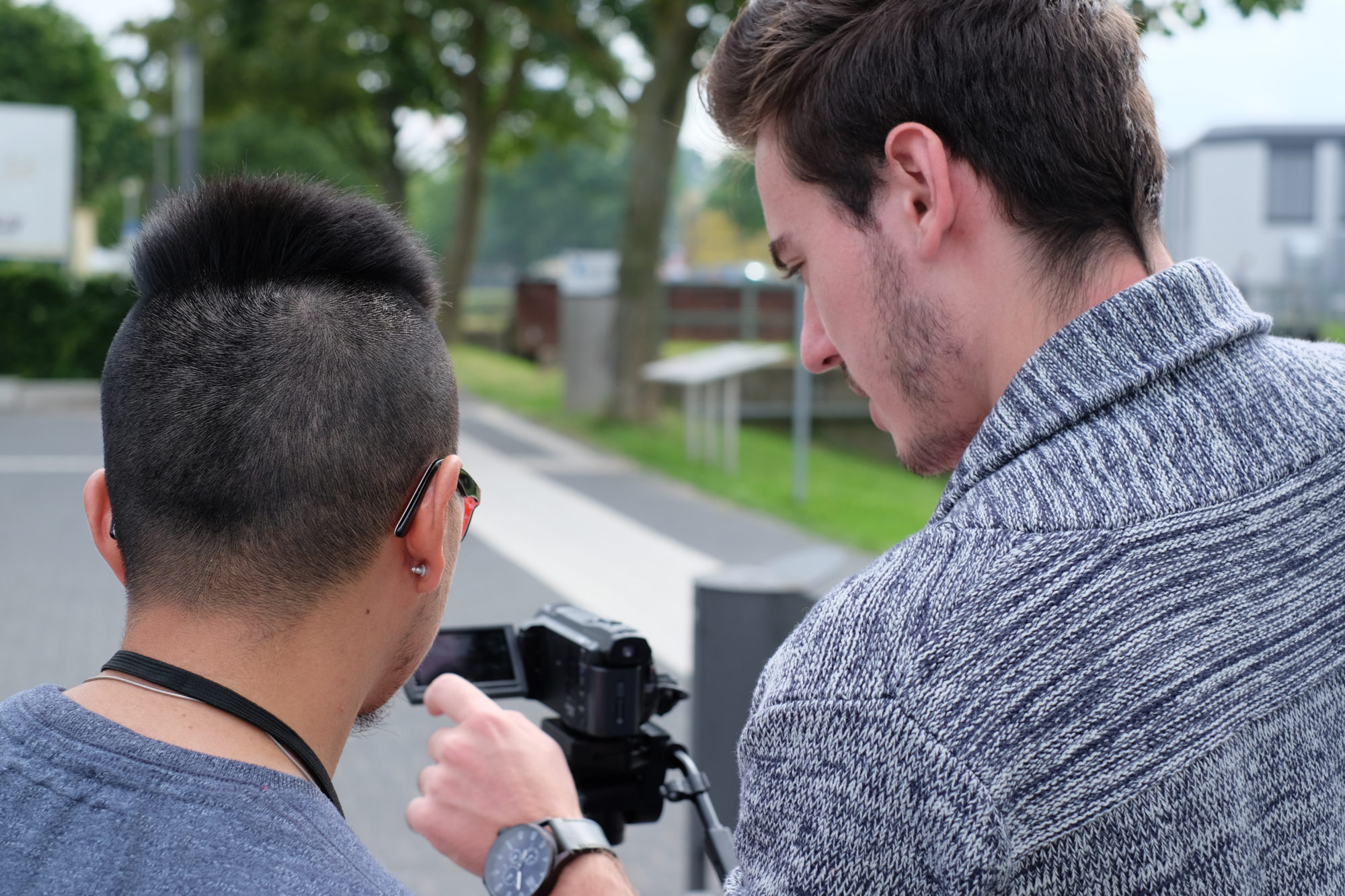
videography
The expansion of video into the scientific process and why video is a good communication format. How to tailor to a brief, basic production crew and stages of production.
At the school participants can choose to focus on the creation of a film about our public engagement event or the school itself.

evaluation and planning
Why evaluation is important and how to evaluate throughout a project. Developing an evaluation strategy alongside your plan, different evaluation methods and analysis of qualitative data.
At the school this feeds into the planning of our event. We will evaluate it and analyse our data on the final day to come to a conclusion of where we were successful and how we might improve the event next time!
